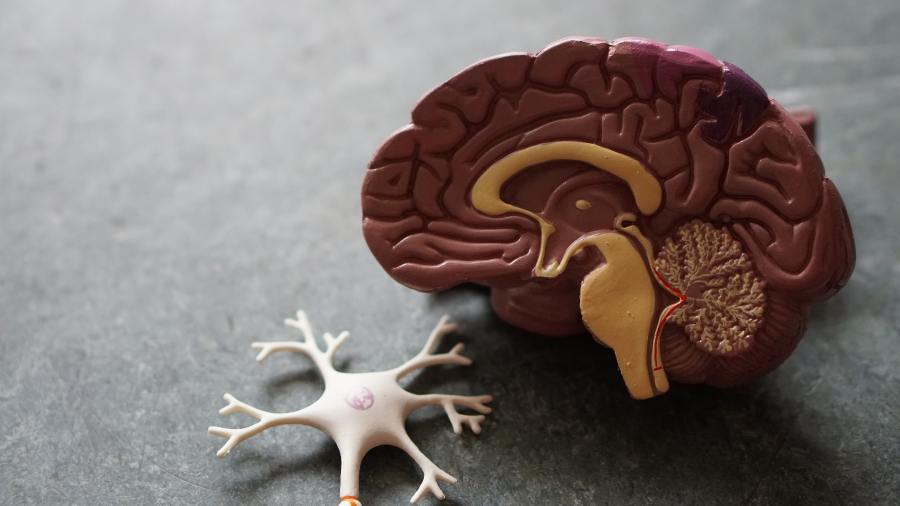Traumatic brain injury (TBI) is a serious condition that can result from a blow or jolt to the head. Diagnosing concussions and other TBIs requires careful observation of the injured person to accurately identify symptoms and reactions. These injuries can lead to a range of complications, from mild concussions to severe brain damage.
In some cases, TBIs can result in permanent brain damage, making appropriate treatment and support crucial for recovery. Understanding the complexities of TBI is essential for providing the necessary care and improving outcomes for those affected.
Introduction to Traumatic Brain Injury
Traumatic brain injury (TBI) is a complex and potentially life-altering condition that affects millions of people worldwide. It occurs when the brain is damaged due to external forces, such as a blow to the head, causing physical, cognitive, and emotional symptoms. TBI can result from various incidents, including falls, car accidents, sports injuries, and combat injuries. Understanding the causes, symptoms, and effects of TBI is crucial for providing proper diagnosis, treatment, and support to individuals affected by this condition.
Brain Injuries Can Change Your Life after an Accident or Illness
The effects of a traumatic brain injury after an accident or illness can be long lasting and often permanent, leading to temporary or permanent damage to brain cells. While rehabilitation is possible, survivors of moderate or severe TBIs do face new obstacles and need to make adjustments to their way of life. Enhancing blood flow to the brain through exercise and specialized treatments is crucial for promoting neural recovery. Traumatic brain injuries (TBI) can be devastating; they can be emotionally and physically devastating, but they can also be financially devastating.
What is a Traumatic Brain Injury?
According to the National Institute of Neurological Disorders and Stroke, a traumatic brain injury is a form of acquired brain injury. That means it’s not genetic, but a result of damage from the outside world. Monitoring and controlling blood pressure is crucial as part of immediate treatment for severe TBIs. A TBI can develop when the head suddenly and violently hits an object, like a whiplash, or when an object pierces the skull and enters brain tissue. Detection of brain swelling through imaging techniques like CT scans is essential for identifying bleeding and other structural issues following a head injury.
Types of Traumatic Brain Injuries
There are several types of traumatic brain injuries, including mild, moderate, and severe TBI. Mild TBI, also known as a concussion, is the most common type and can cause temporary symptoms such as headaches, dizziness, and confusion. Moderate to severe TBI can result in more significant damage to brain tissue, leading to long-term cognitive, emotional, and physical impairments. Other types of TBI include penetrating TBI, where an object enters the brain, and closed head injury, where the brain is damaged without an open wound.
Severity of Traumatic Brain Injuries
The severity of TBI is determined by the extent of brain damage and the resulting symptoms. Severe TBI can cause significant cognitive and physical impairments, including memory problems, difficulty with communication, and movement problems. Moderate TBI can result in similar symptoms, but to a lesser extent. Mild TBI, while often temporary, can still have a significant impact on daily life and may require medical attention to prevent worsening symptoms. The severity of TBI can also be influenced by factors such as age, medical history, and the presence of other injuries.
Common Causes of Traumatic Brain Injury
According to the CDC, slip and falls are the most common cause of TBIs. Over 1.3 million TBIs are attributed to falls annually. Consequently, the elderly who are more prone to falls are uniquely at risk.
Car accidents and other motor vehicle accidents are responsible for many TBIs as well. The latter includes physical fights and violent attacks. Motor vehicle accidents also contribute significantly to TBI-related hospitalizations and can lead to mental health issues such as post-traumatic stress disorder.
Athletes, especially those who play contact sports, are known to develop TBIs. While helmets are an important preventative measure, they don’t guarantee full protection. Head trauma can have long-term effects and requires timely treatment to manage cognitive and physical challenges effectively.
The Impact of Traumatic Brain Injuries
TBI patients may experience professional setbacks. Keeping up at the same pace at work and communicating with colleagues can be difficult due to emotional difficulties.
The ongoing challenges can also affect the patient’s personal life. Communication problems can lead to frustration and misunderstandings, impacting social interactions and relationships. Starting and finishing daily routines could become more time-consuming and frustrating. Family relationships will almost certainly change. In some cases, the TBI victim will be totally dependent on caregivers.
Diagnosis and Treatment
Diagnosing TBI typically involves a combination of physical examination, medical history, and imaging tests such as magnetic resonance imaging (MRI) or computed tomography (CT) scans. Treatment for TBI depends on the severity of the injury and may include physical therapy, speech therapy, and cognitive rehabilitation. In some cases, medication may be prescribed to manage symptoms such as headaches, mood swings, and sleep disturbances. It is essential to seek medical attention immediately if symptoms persist or worsen over time.
Rehabilitation and Recovery
Rehabilitation and recovery from TBI are critical for regaining cognitive, emotional, and physical function. A multidisciplinary team of healthcare professionals, including physical therapists, occupational therapists, and speech therapists, works together to develop a personalized treatment plan. The goal of rehabilitation is to help the individual regain independence, manage symptoms, and improve overall quality of life. With proper care and support, many people with TBI can make significant progress and achieve a full or partial recovery. However, the recovery process can be long and challenging, requiring patience, dedication, and access to specialized care and resources.
Short Term
The brain begins working immediately to repair its own tissue and internal damage. Upon initial injury, many TBI patients lose consciousness. It’s one way the brain responds to give itself time to repair.
Some of these repair processes are extremely helpful, especially when followed by medical treatments. Blood tests, despite advancements in imaging technologies, are not always effective for diagnosing mild TBIs. With short-lived TBIs, physical symptoms like blurred vision and memory issues subside and the brain’s normal function is almost fully restored within a three to six month period.
Long Term
Some parts of the brain cannot be repaired and may progressively decline once they’re damaged, potentially leading to permanent brain damage. In these cases, doctors need to monitor changes on an ongoing basis. It is also crucial to monitor for blood clots in patients with severe TBIs, as deep vein thrombosis can form during prolonged inactivity. Long-term treatments may be able to slow down deterioration.
Physical
Moderate and severe TBIs can lead to multiple physical problems, including brain swelling as a common complication. One-fifth of those with more severe injuries have reported serious difficulties with their health. TBIs can also damage blood vessels within the brain, affecting neurovascular coupling, which is crucial for ensuring the brain receives the necessary glucose and oxygen based on its demands. Some of the symptoms of TBIs are loss of memory, disorientation, loss of balance, fatigue, visual difficulties, and unrelenting, severe headaches.
Emotional
Those who sustain TBIs can develop a wide range of emotional problems and difficulties. They may have difficulty controlling their emotions and may get emotional very quickly and with an abnormal degree of intensity. They may also be on an emotional rollercoaster, feeling happy one moment, then suddenly sad or angry.
Mood swings often result from damage to the limbic system, the part of the brain that controls emotional behavior. Damage to the pituitary gland can lead to significant hormonal dysfunction, affecting growth hormone, thyroid, cortisol, and sex hormone levels, which in turn can produce a variety of symptoms throughout the body. Sometimes there is no specific event that triggers a sudden emotional response. Medication may be needed to stabilize those suffering from unpredictable feelings.
How Do I Know If I Have a Brain Injury?
The CDC reports that approximately 1.7 million people suffer a traumatic brain injury in the United States alone. It can happen to anyone. Knowing the common symptoms and signs will help you recognize a TBI.
Double vision, nausea, headaches, unconsciousness, and leaking fluids from the nose or ears may surface with a head injury. After you’ve been injured, it is important to note that the signs of TBI may not be immediately apparent. Symptoms can develop over several days or even weeks after the event. Consulting a medical professional is crucial to evaluate the severity of symptoms and receive appropriate care.
To be on the safe side, it is best to see a doctor as soon as you can, even if you’re feeling well. Follow up if you notice any behavioral or physical changes after a blow to the head, even if that change seems insignificant.
A doctor will evaluate you using the Glasgow Coma Scale (GCS). During this evaluation, one’s eye function, motor response, and verbal skills help doctors detect the presence and severity of a TBI.
Your doctor will also check you for physical signs of trauma, including bruising and swelling. Imaging tests like MRIs and CT scans are also used in evaluating patients’ brains.
Filing a Claim After Your Traumatic Brain Injury
If you are suffering from a traumatic brain injury due to another party’s actions, you can file a personal injury lawsuit to seek compensation for your medical expenses, pain and suffering, and loss of income. The Department of Health and Human Services plays a crucial role in providing support and resources for TBI patients.
Keeping detailed records about your injury will help you to establish your case. These records can include photos of the accident or location where you were injured, witness statements, police reports, and your medical records. According to the Centers for Disease Control and Prevention (CDC), the number of TBI cases has been increasing, highlighting the importance of monitoring and reporting these trends for public health.
Contact an Experienced Personal Injury Attorney
If you or a loved one is suffering from a traumatic brain injury, it is crucial to consult a medical professional to evaluate the severity of your symptoms. Our personal injury attorneys will fight for compensation on your behalf so that you can focus on recovery, especially in cases of severe traumatic brain injury that require extensive legal and medical attention. Our free initial consultations will help you decide what course of action suits you best. Contact us via our contact form or call us at (772) 225-4900.

